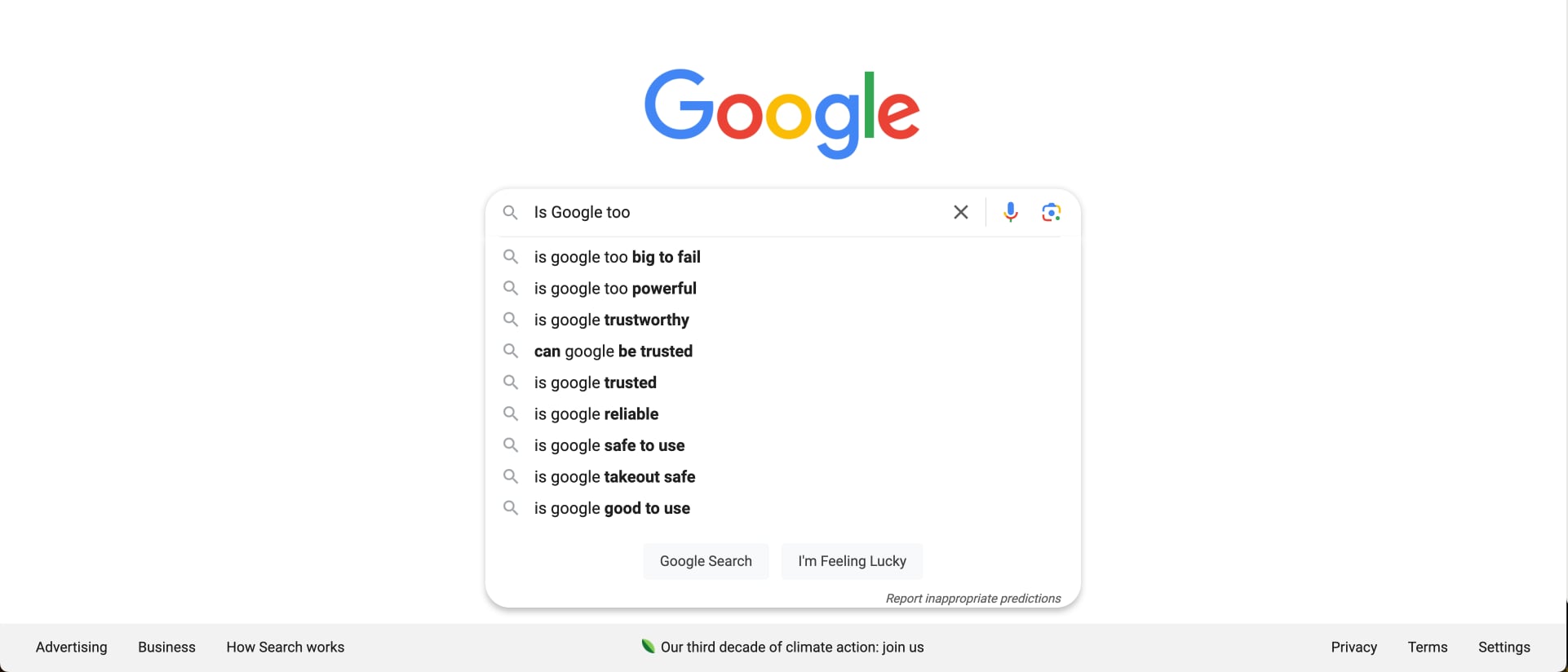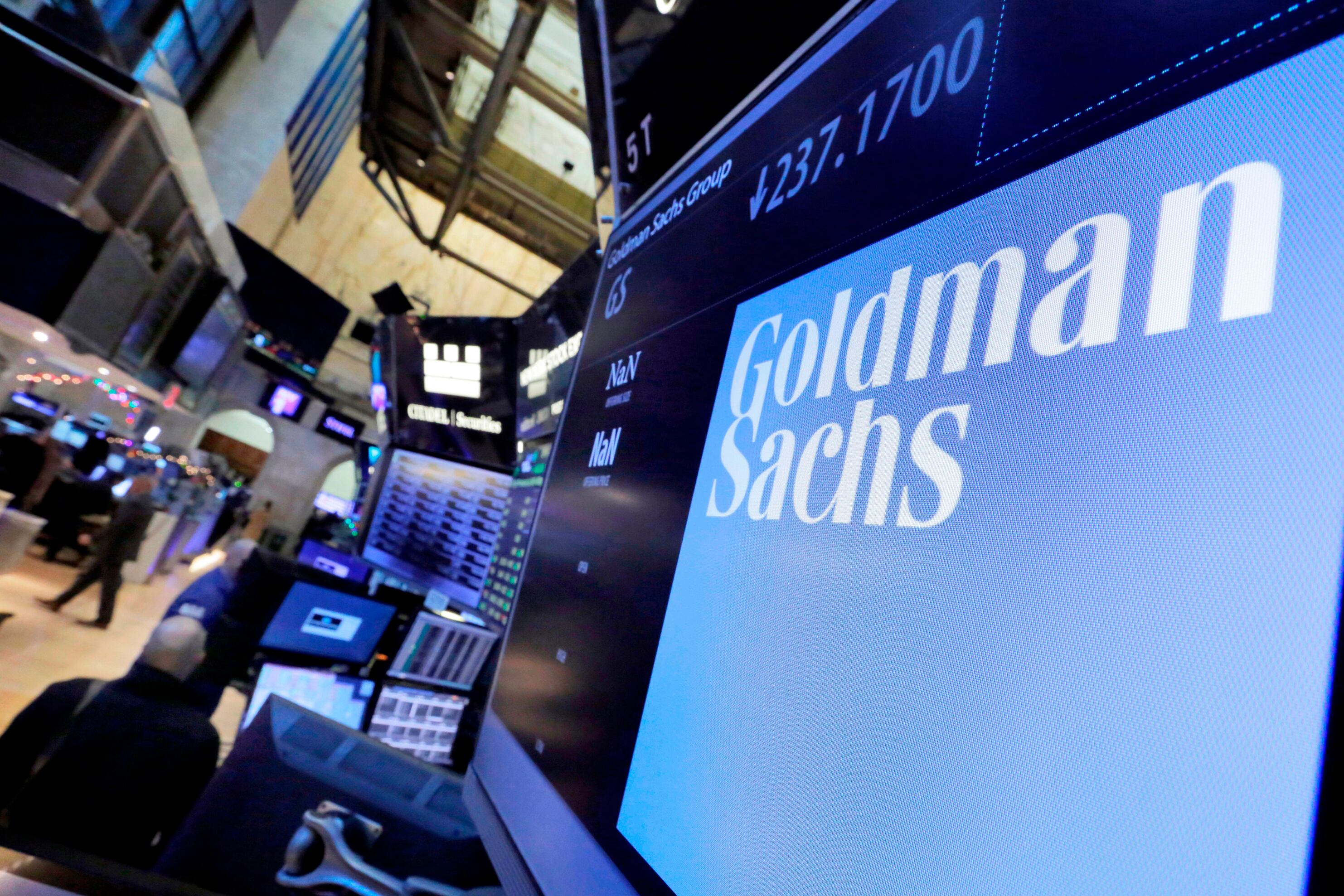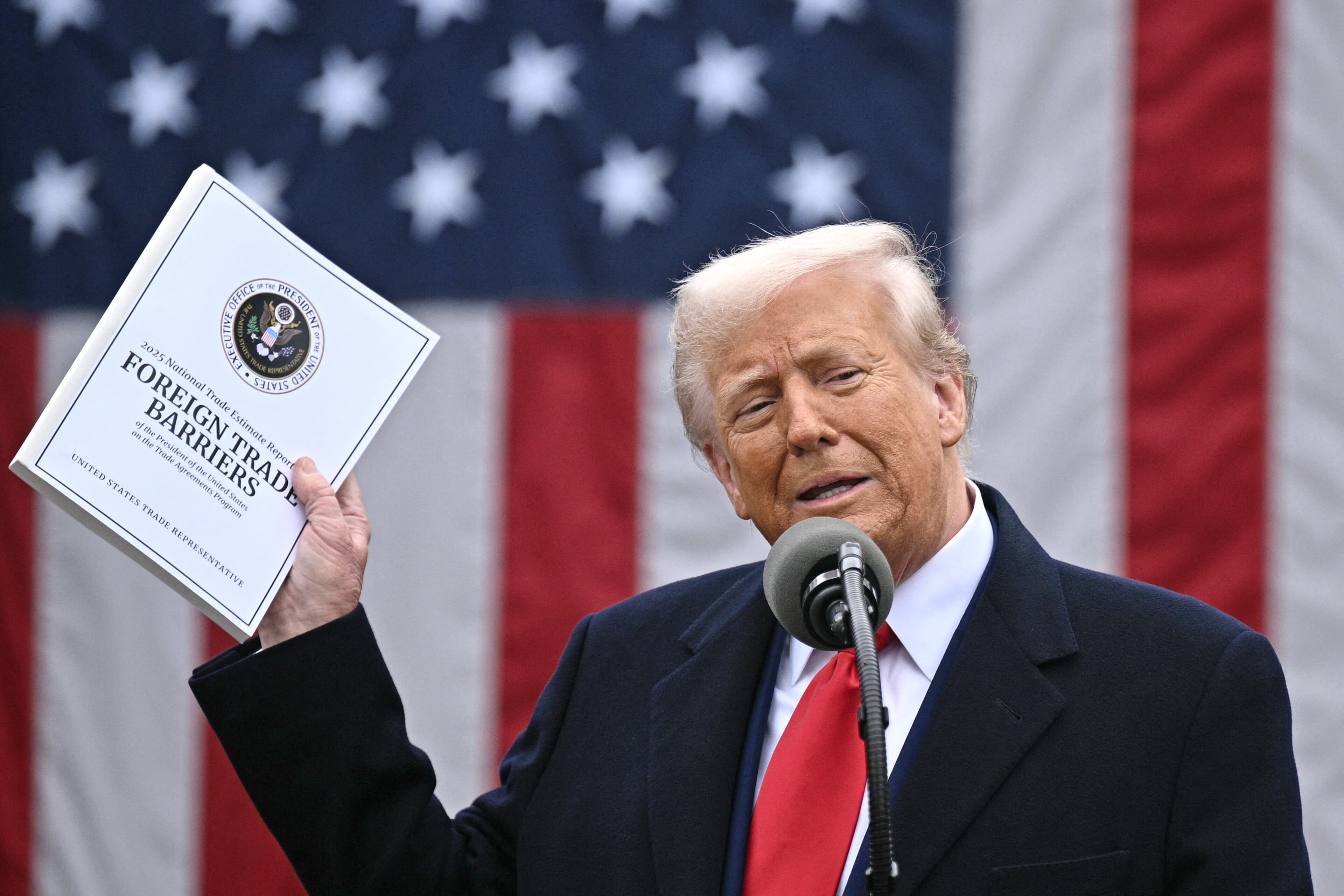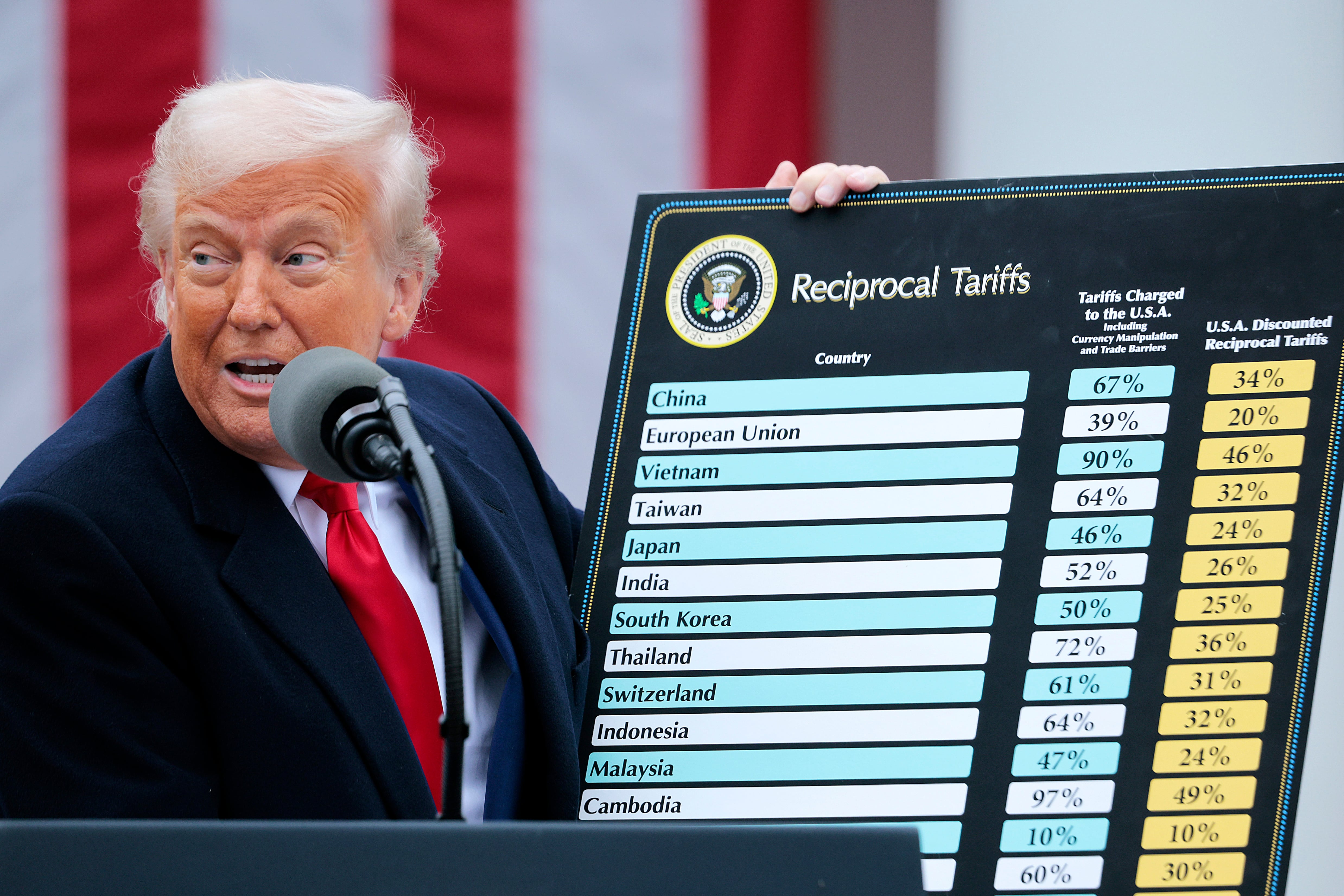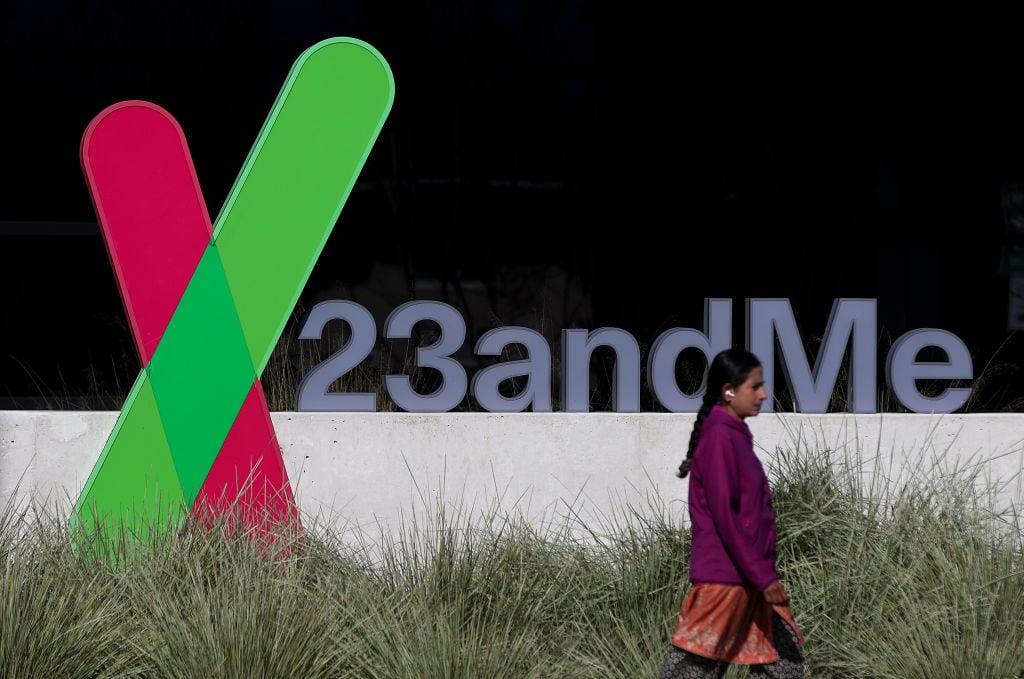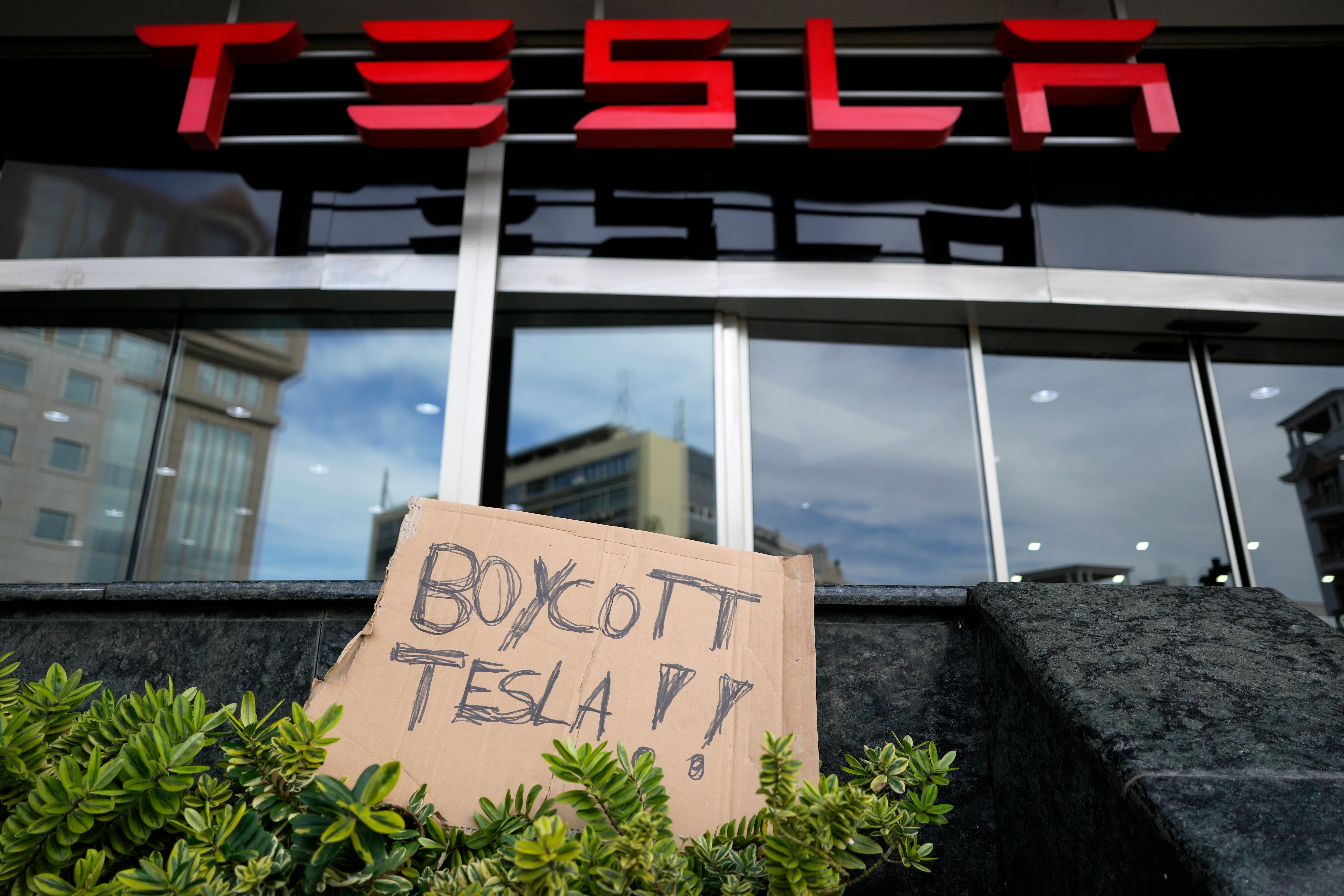Maybe it’s time to break up the world’s largest Internet search company. That’s the dilemma facing federal regulators, who have just won a decisive antitrust victory against Google for illegally monopolizing the Internet search business. But how do they make the punishment fit the crime? Google has a market cap of $2 trillion, making it the fourth-largest company in the U.S., so any change ordered by the courts will not only be contested by Google’s sizable legal team but also shake up the business of the Internet as we know it. Here are some of the things being considered by Judge Amit Mehta, who ultimately decides on the punishment, and the Department of Justice and state attorneys general who brought the lawsuit.
- Force Google to spin off some of its activities into separate companies. That could include selling off the Chrome browser or the Android smartphone operating system.
- Force Google to make its source code available or licence it to rivals, like how Microsoft had make code available to app developers after it lost an antitrust suit in 2021.
- Ban Google from cutting exclusive deals to share search revenue if its search engine is the default tool on a device’s default browser. Google had $175 billion in revenue last year, so the stakes are high—for everyone, including Judge Mehta, who needs to be certain he does not undermine Google’s core business, which is built on the data scraped from its billions of daily searches.
Get Big Business This Week in your inbox every week—and read it before everybody else! Sign up today.
The Usual Suspects
- Elon’s World: Elon sat down with The Donald for an interview on X that started 42 minutes late, with Musk blaming a DDOS attack by hackers. As the AP noted, it appeared X Spaces was just overwhelmed. Afterwards, the United Autoworkers filed federal labor law violation charges, alleging the two illegally intimidated workers when they agreed they’d fire employees who go on strike… Some commentators are suggesting Musk help out Donald by acquiring Truth Social, with its 9 million users and $1 billion million annual revenue, and absorbing it into X. The Washington Post reported Trump had asked Musk to bail him out of Truth back in March. X-Truth has a certain ring to it, don’t you think? … X was ordered to pay $600,000 to Gary Rooney, a senior employee in Ireland, who failed to click on the agree button in an email from Musk telling employees they’d have to be “hardcore.”... Texas regulators slapped Space X over its “water deluge system” that tries to contain the heat of rocket launches by spraying vast amounts of H2O on the launch site. Regulators say the spray lets untreated, chemically polluted water into nearby wetlands, already damaged by flying debris and a 3.5-acre brush fire caused by launches… Moroccan Olympic boxing champion Imane Khelif says she’s filed a lawsuit accusing Musk and Harry Potter author J.K. Rowling of cyberbullying, amid erroneous reports about Khelif’s biological sex… Finally, when the EU’s internal market commissioner posted a letter on X threatening the “full use” of sanctions if X failed to curb “illegal content,” Elon posted a Tropic Thunder meme suggesting the commissioner “take a big step back and literally f— your own face.”
- It’s the Economy, Stupid! Inflation has cooled to 2.9%, putting talk of a drop in interest rates on the menu at the Fed’s Open Market Committee meeting September 18 (some market watchers are predicting three consecutive 0.25% declines). That, along with strong corporate earnings this quarter, brought the stock market back, with major indices creeping upward this week. Even Nvidia was up, rising 15% in the past week after losing a quarter of its value over the previous four. And mortgage rates are dropping, with the standard 30-year fixed-rate mortgage at 6.61% on Thursday. It helped that retail sales grew 1%, beating expectations, with Walmart reporting higher sales. Grocery prices are no longer rising as rapidly, but food inflation remains a top issue for voters, polls show. Meanwhile, top U.S. trade officials head to Shanghai to avert a trade war.
- More Rides, More Cruises, More Mouse: On the heels of a 4% rise in Q2 revenue, Disney announced plans for four more cruise ships (five are already in service, with four more under construction) and the largest expansion of the Magic Kingdom in Florida, adding a “land” devoted to classic Disney villains and another to the Cars movie franchise.
- Paramount Dims the Lights: After announcing an agreement to be sold to Skydance, Paramount says it’s cutting 15% of its U.S. workforce, about 800 employees, to save $500 million. The news is little surprise as these are tough times for the entertainment business. Last week, Paramount reported a sharp slowdown in its linear TV business and wrote down more than $6 billion on the value of its cable unit.
I Like My Corporate Politics Like I Like My Coffee: Cold and Bitter
Starbucks fired CEO Laxman Narasimhan amid slowing sales, criticism from founder Howard Schultz, and pushback from activist investors who feel the chain is stagnating. “We have big challenges, no question, but they’re not impossible,” Narasimhan told employees at a company forum in Seattle on July 31. His reward arrived faster than a decaf venti. In his place is Brian Niccol, who turned Chipotle around after a series of food-poisoning issues slashed sales at the burrito chain. According to insider reports in several media, Starbucks’ board had grown weary of Narasimhan’s inability to move the needle on the company’s revenue and share price. He was hired as Schultz expressed worry that the company was too far removed from its customers, and Narasimhan jumped right into barista school and even manned a takeout window. Alas, he couldn’t solve the growing discontent from baristas trying to unionize, and eventually, his coffee got cold.
The Snack Market Stock Market
A fistfull of peanuts in every Pop-Tart? Who knows what might be in the offing, after family-owned candy giant Mars said it had agreed to pay nearly $30 billion for Kellogg’s spinoff Kellanova, which makes Pringles, Cheez-Its, Pop-Tarts and Eggo waffles. What convinced Kellanova to leggo its Eggo? A $9-a-share premium over Tuesday’s closing price of $74.50, plus a somewhat stagnant snack market. Grocery inflation has been a bummer for Kellanova, keeping sales growth at 4% in the last quarter, only slightly ahead of inflation. Mars and Kellanova together would have about 8% of the U.S. snack market, compared to a 9% share for PepsiCo, which owns Frito-Lay. The deal is the largest food M&A deal since Smucker’s bought Hostess for $5.6 billion last year. It also gives Mars an opening overseas, where Kellanova has a large footprint. Mars is one of the largest privately held companies in the U.S., with sales last year of $50 billion and 150,000 employees. Few layoffs are expected because the two businesses are so different, Kellanova’s CEO Steve Cahillane told the AP: “They have chewing gum plants, they have pet food plants, we have Pringles plants and Cheez-It plants. You can’t make our food at their plants.”
Peter S. Green is a veteran reporter and editor who has spent more than two decades covering business and finance from Eastern Europe to New York City, and has worked for Bloomberg News, The New York Post, The New York Times and The Messenger. He lives in New York City and is always looking for the next big story.
